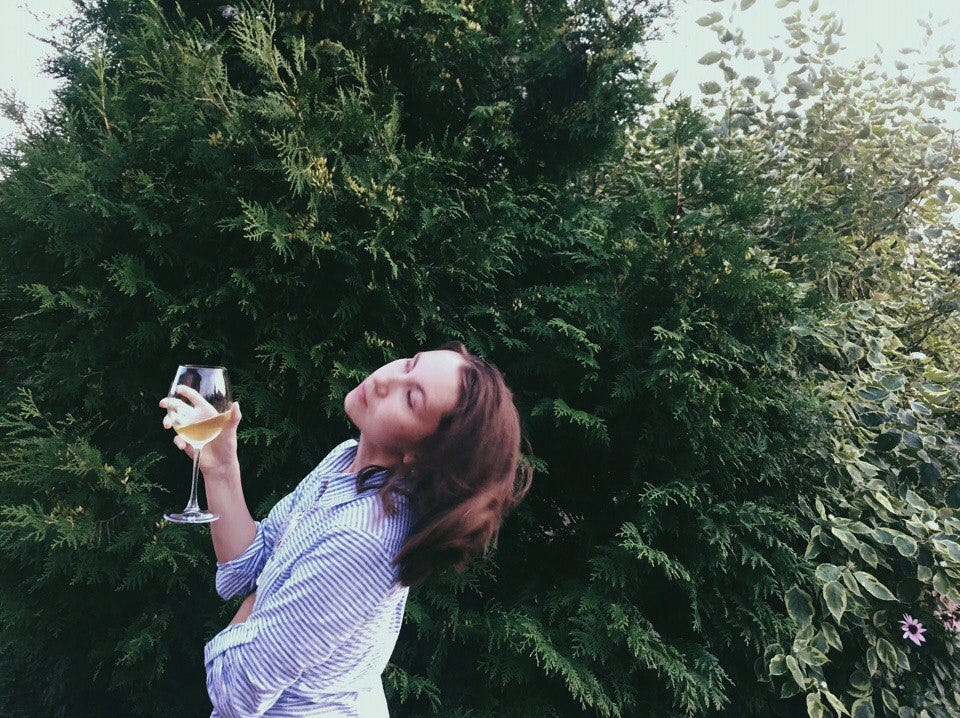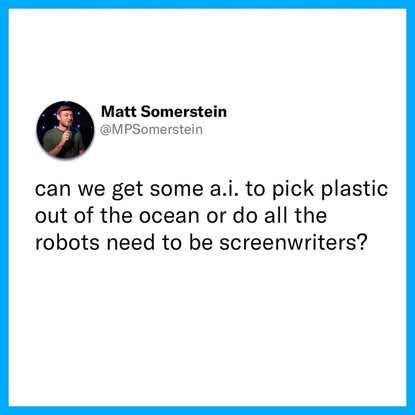I don’t feel particularly creative lately, which is a sad thing. I have always considered creativity to be a backbone of intellectuality, if not the world’s in general, then at least my own.
But then, I think: all problems of creativity are problems of living.
To live is to create, constantly. Life mirrors fiction, only the stakes are higher. Nothing is more creative than choosing how to live, day after day, year after year, making decisions, facing consequences. In life, you never know when the dark night of the soul will end, or if it will at all. Funny enough, when I was a teenager, my main fear, as put by Julian Barnes, was that “Life wouldn’t turn out to be like Literature.”
Life, of course, turned out to be much more.
I knew I wanted to love deeply, to live freely, but beyond that, everything was a blur. I wanted everything and its opposite. I wanted to be a mother. I wanted to party. I wanted to write. I wanted to have sex. I wanted to live alone in the countryside. I wanted to become a physicist, a cosmonaut, an actress, etc. A woman of one too many interests is a woman in trouble. I thought writing would help me make sense of it all. It would let me live countless lives, tell stories and pretend them to be true. Through writing, I could sort of, kind of be a physicist, a cosmonaut, an actress, etc. Through writing, I could tell stories about women who have a voice in a society that doesn’t want women to have a voice. I have done no such thing, of course. Hopefully, only yet.
The thing is—I don’t exactly find writing enjoyable. I don’t like the process of writing. I don’t like how writing makes me feel. I write because I feel obligated to write by a compulsion. It’s not like I have a choice. Putting words down on paper is therapeutic as much as it is miserable. Even if I don’t write, and I don’t write often, I thing about writing, constantly. Everything is copy, yes, but also everything is a chance to reinvent yourself.
Why all the rumblings?
I spent the last seven years working on a novel about a group of friends: an aspiring writer, a successful artist, and a Condensed Matter Physics PhD student. It’s a story about life and death, love and loss. It’s a story about art. It’s a story about being a young woman and making the right choices and the wrong choices and the blurry difference between them. I wrote probably two hundred thousand words and discarded most of them for a simple reason: they didn’t convey enough emotions. Also, I don’t know how it ends. Another creativity problem.
Now a machine can write two hundred thousand words in a matter of minutes. Some of them will be good, some of them will be bad. As a person living in this day and age I am in awe. How could I not be? As a writer, I thought I had more time.
I am not opposed to technology. I believe technology is fundamentally good and to everyone’s benefit. I would be a hypocrite to say otherwise. My phone is practically a continuation of my arm. Sometimes I feel phantom vibrations if it is out of my eyesight. My work revolves around technology. I have a job because internet exists. I program, I use SAAS tolls and they make my life easier. I use AI to make my code smoother and faster, to analyse datasets, and, to my shame, to consult on medical question, because, unlike many doctors, it at least listens. I have no issue with AI doing those things. I am glad it’s doing those things.
What I don’t want AI to do is creative writing.
It’s a very egoistical fear. You always care for something deeply when you have skin in the game. As a writer, of course, I am terrified. But as a person who owns some Nvidia shares, I am a fucking hypocrite: duality of life. Chances are, if you have any type of pension investments, you are too.
So what exactly is the problem?
Machines can create faster than all of us. And, unfortunately, better than some of us.
AI models are trained on massive datasets (images, texts, music) without the consent of the original creators. This includes the work of artists, writers, illustrators, and musicians whose pieces were never intended to be used as training material. When AI generates art that mimics these styles or recombines fragments of existing work, it raises serious ethical concerns: the labor, skill, and personal expression of human artists are effectively repackaged without attribution, compensation, or control. It’s not inspiration. It’s theft at scale.
AI undermines both the integrity of creative labor and the sustainability of artistic careers, turning art into raw data and artists into invisible inputs in someone else’s profit-driven machine.
It is, as everyone says, horrendous for environment, but I don’t want to be an even bigger hypocrite discussing this point, since 1. I don’t know the actual data 2. most things I (we?) do are bad for the environment no matter how much I try to minimise the impact. In my work, we at least try to offset the damage by paying CO2 neutral offset programs.
The dialogue around the essence of creation, and the role technology plays in shaping it, is no longer theoretical. The cat is out of the bag, and I truly don’t see a way to get it back in. What we can do now is actively shape the direction of AI development, ensuring it aligns with ethical standards and human values.
But is there at all a way to make it ethical?
I don’t know.
What is art?
Tolstoy believes that “the business of art lies just in this, -- to make that understood and felt which, in the form of an argument, might be incomprehensible and inaccessible.” Toni Cade Bambara said: “The role of the artist is to make the revolution irresistible.” Austin Channing Brown wrote in regards to these words “That is such a part of what I try to do in my justice work; to have it rooted in joy and creativity and vision for a future with fewer isms and whole lot more dignity and humanity.”
Humanity is key. The fundamental human feelings and experiences are universal. We all know how it feels to want something, to hold someone’s hand for the first time, to listen to music, to cry so hard you think you might die from it, to talk on the phone until 4 in the morning with a person you are falling in love with because you just can’t bear the thought of hanging up. They are also dual. To be happy, you must first be sad. To understand love you have to know what indifference feels like.
Gustav Flaubert said, “You don’t make art of good intentions.” I tend to agree. (Look at me, validating Flaubert.) You don’t make art to be liked or to be moral. You make it because you have to. You make it to fill the void in your soul and maybe, if you’re lucky, in someone else’s. You make art to render the revolution not only necessary, but irresistible. The medium doesn’t matter. The platform doesn’t matter. What matters is the hunger behind it. The need. It’s always art for the sake of the art.
Here comes a but.
If an AI-generated story, painting, song—anything—can make me feel something real, can move me to tears or laughter, is it art?
Some say yes. That if it creates an emotional reaction, it doesn’t matter who or what made it. That the presence of a soul in the creator is not as important as the impact on the soul of the receiver. That response alone legitimizes the work.
But then what does that say about us?
It raises a fundamental question: what matters more—the act of creation, or the identity of the creator? Traditionally, we’ve worshipped the artist. The tormented genius, the misunderstood visionary. Their history, intention, and perspective were baked into the value of the work itself. More often than not, knowing the creator gave the creation its context. Without them, we were missing part of the story.
But now we’re being asked to reorient our gaze. Let’s forget the environmental impact for a moment, the artistic theft. What if the story is the only story? What if the origin doesn’t matter as much as the feeling it leaves behind?
I don’t want that shift. I want to believe the artist still matters. That the body behind the work means something. That the art is the residue of a lived life. Creativity is a fundamental part of being human. It’s messy, obsessive, intimate. It’s the way we think through pain, and celebrate joy, and leave traces of ourselves behind so we don’t vanish entirely. It’s the most elegant way to prove and solidify our existence.
Maybe the time to create is now, precisely because it may not always be ours to claim. Maybe we are one of the last generations to make things entirely on our own: from the chaos of our minds, with the slowness of our hands, unmediated by algorithmic logic.
I hope creativity doesn’t become a relic.
I chose to be optimistic.
AI can go where we have already been but not where we are going.





